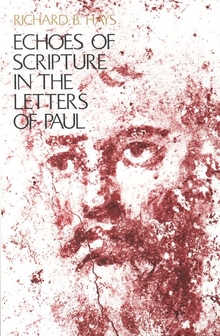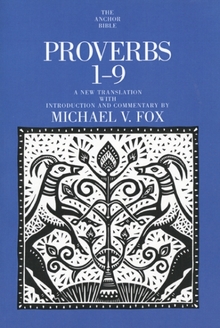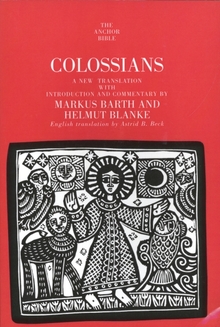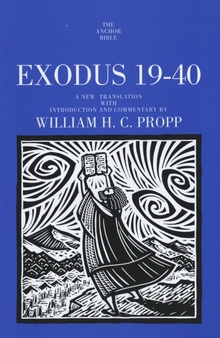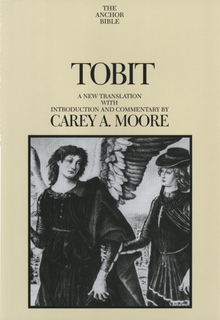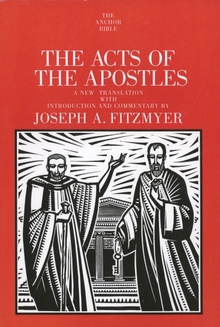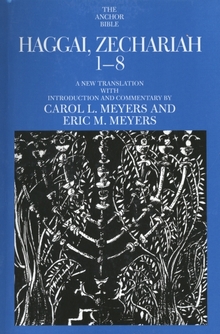Echoes of Scripture in the Letters of Paul
WARNING
You are viewing an older version of the Yalebooks website. Please visit out new website with more updated information and a better user experience: https://www.yalebooks.com
Richard B. Hays
"Hays has without doubt posed the right question at the right time within the horizon of a particularly important problematic. . . . A new beginning for the question concerning the reception of the Old Testament in the New."—Hans Hübner, Theologische Literaturzeitung
"A powerful reading. . . . [Hays’s] careful and fresh exegesis . . . challenges not a few traditional or highly regarded readings. . . . A major contribution both to Pauline studies and to our understanding of earliest Christian theology as a living dialogue with the scriptures of Israel."—James D. G. Dunn, forthcoming in Literature and Theology
"A fresh interpretation of Paul’s references to the Jewish Scriptures. . . . Written in a lively, semipopular style, this important study succeeds in showing that Paul’s scriptural quotations and allusions are often more ’polyphonic’ and rhetorically meaningful than traditional exegesis has allowed."—David M. Hay, Interpretation: A Journal of Bible and Theology
"This lively excellent book is a fine effort to link the two worlds of modern critical New Testament scholarship and literary criticism. The book is clear and accessible to the nonspecialist as well as the New Testament scholar. It is up-to-date in the two worlds it seeks to bring closer together and discriminating in its use of secondary literature from each."—John H. Schütz, Bowman and Gordon Gray Professor Emeritus, The University of North Carolina at Chapel Hill
"Written in a direct, engaging, lively manner, this is a study of great interest to literary students, whether of methods of allusiveness or of biblical literature."—Eleanor Cook, professor of English, University of Toronto
"In the letters of Paul, the serious reader is faced with the fascinating challenge of developing a sensitivity to the resonances of intertextuality, and it is here that Hays makes his weighty and exciting contribution, helping us to sense the remarkable ways in which Paul heard the voice of scripture far beyond the confines of formal citation."—J. Louis Martyn, Edward Robinson Professor Emeritus of Biblical Theology, Union Theological Seminary
"This carefully argued study (which is fully indexed and thoroughly footnoted) will be of interest primarily to faculty and graduate students with interests in either biblical literature or literary methods of allusiveness. It ought to be acquired for such audiences."—Choice
"This book is sometimes insightful, sometimes puzzling, sometimes provocative, but never boring. Everyone can learn from it."—E. Earle Ellis, Theology Today
"A fresh interpretation of Paul’s references to the Jewish Scriptures. . . . Written in a lively, semipopular style, this important study succeeds in showing that Paul’s scriptural quotations and allusions are often more ’polyphonic’ and rhetorically meaningful than traditional exegesis has allowed."—David M. Hay, Interpretation: A Journal of Bible and Theology
"Rich and provocative. . . . By penetrating and insightful analysis of many texts and by encouraging so many critical hermeneutical issues, Hays makes a material contribution to . . . [his] subjects."—Karl P. Donfried, Theological Studies
"Hays has without doubt posed the right question at the right time within the horizon of a particularly important problematic. . . . A new beginning for the question concerning the reception of the Old Testament in the New."—Hans Hübner, Theologische Literaturzeitung
"A major contribution to hermeneutics. . . . An intriguing publication which combines an impeccable knowledge of academic NT criticism with wide-ranging literary interests."—Arthur Long, Faith and Freedom
"A major work on hermeneutics. . . . Hays’s study will be a work to use and to reckon with for every Pauline scholar and for every student of Paul’s use of Old Testament traditions. It is sophisticated, in both a literary and theological sense, and written with considerable wit and confidence."—Carol L. Stockenhausen, Journal of Biblical Literature
Publication Date: January 27, 1993

